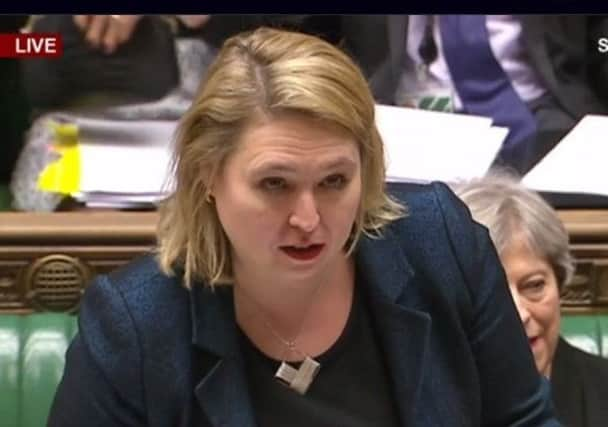Northern Ireland rates set to be hiked by 4.5%


Karen Bradley said it had been her “firm hope” that a devolved government would have been able to look at the matter, but since none had been in place for 14 months it was left to her to act from Westminster.
Domestic property rates will rise by 4.5%, and non-domestic ones by 1.5%.
Advertisement
Hide AdAdvertisement
Hide AdCollecting regional rates accounts for 5% of the Northern Ireland Executive’s revenue, and she said the hike is necessary to address “a hole there would otherwise be in the budget for 2018/19”.
She added that one study had mooted a rates increase of up to 10% above inflation, but she had decided domestic rates should only grow by 3% above the current inflation rate of 1.5%.
She concluded that, if and when a devolved government ever gets up-and-running, it could take an “executive decision” to set its own rates.
Rising to speak in a virtually empty chamber, Labour’s shadow Northern Ireland secretary said: “I do think it a pretty poor showing for the rest of the house to have precisely 10 minutes to look at the bill before we debate it’s contents.
Advertisement
Hide AdAdvertisement
Hide Ad“It doesn’t strike me as a terribly long time to look at a measure that is increasing taxes on 1.8m people in this country.”
However, he backed the bill as a “necessary” move.
Sammy Wilson, DUP MP for East Antrim, also dubbed it “necessary”.
“There was a fear in Northern Ireland, a genuine fear, given what the civil servants were recommendating in the options papers, and the record of past direct rule ministers, that we were going to see a Draconian increase in local taxation,” he said.
But he said it was “good news” that firms are only going to see an increase in line with inflation.
Another part of the bill Karen Bradley introduced on Wednesday was a rubber-stamping of the extensions to the cost controls which had been put in place on the RHI scheme.